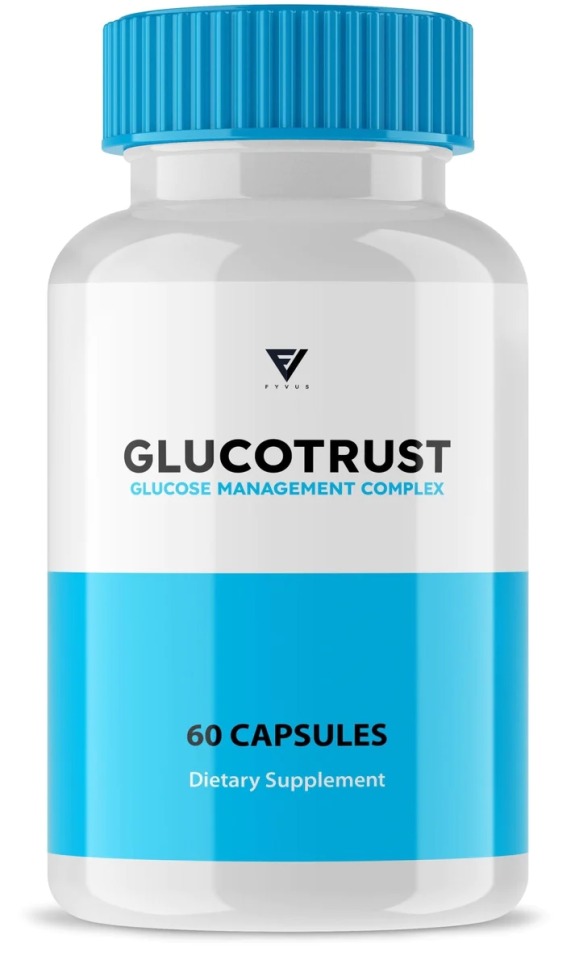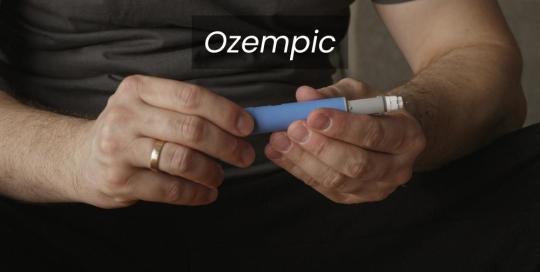#Comprehensive Diabetes Management
Explore tagged Tumblr posts
Text
Type 2 Diabetes and Januvia: Managing Blood Sugar Levels Effectively
Welcome to the esteemed Well Health Hub, a premier repository of authoritative and exhaustive health-related knowledge. Within the confines of this discourse, we shall embark upon a profound exploration of the intricate intricacies inherent in Type 2 Diabetes, leaving no stone unturned in our quest to comprehend the manifold dimensions of this malady. Moreover, we shall endeavor to illuminate the…

View On WordPress
#Age#Blood Glucose Regulation#blood sugar levels#Blood Sugar Monitoring#Cardiovascular Health#Chronic Metabolic Disorder#Clinical Studies#Comprehensive Diabetes Management#diabetes awareness#Diabetes Management#Efficacy#Ethnicity#Family history#FAQs#gestational diabetes#Gestational Diabetes Risk#Health Information#healthcare#Healthcare provider#Holistic Approach#Incretin Hormones#Insulin Resistance#Januvia#Januvia Benefits#Januvia Dosage#Januvia Efficacy#Lifestyle Changes#medication#Medication adherence#obesity
0 notes
Text

Comprehensive Diabetes Treatment in Ludhiana- Dr. Nitin Behl
Dr. Nitin Behl provides comprehensive diabetes treatment in Ludhiana, offering personalized care and modern techniques to manage Type 1 and Type 2 diabetes effectively. Regain control of your health with expert guidance.
#Diabetes treatment in Ludhiana#Dr. Nitin Behl#Best diabetes doctor#Blood sugar management Ludhiana#Type 1 diabetes specialist#Type 2 diabetes care#Comprehensive diabetes care#Endocrinology expert Ludhiana#Diabetes prevention tips#Ludhiana healthcare services
0 notes
Text
Managing diabetes can be overwhelming, but with a balanced approach, individuals can maintain a healthier lifestyle. One key factor in diabetes management is the right support system, which can come through home care in Atlanta, Georgia. A skilled caregiver can assist with daily routines, meal planning, and medication reminders, helping individuals stay on track with their treatment plans.
0 notes
Text
#Diabetology in Madurai#Diabetes treatment near me#Best diabetologist in Madurai#Diabetes care center in Madurai#Diabetes specialist near me#Comprehensive diabetes management Madurai#Blood sugar control treatment#Diabetes complications care#Type 1 diabetes treatment in Madurai#Type 2 diabetes management near me#Gestational diabetes care Madurai#Diabetes hospital near Anna Nagar Madurai#Shenbagam Hospital diabetology department#Diabetes clinic in Madurai city#Best diabetes care near Anna Nagar
0 notes
Text

Shenbagam Diabetes Clinic in Madurai showcasing its specialities, including diabetic foot care, podiatry, nutrition counseling, obesity clinic, dental services, and advanced diagnostics.
#Shenbagam Diabetes Clinic#Diabetes Care Center Madurai#Diabetic Foot Clinic Services#Podiatry Services Madurai#Nutrition Counseling for Diabetes#Obesity Clinic Madurai#Diabetes Education Program#Dental Clinic for Diabetic Patients#State-of-the-Art Diagnostic Lab#Comprehensive Diabetes Treatment#Foot and Dental Health for Diabetics#Diabetes Prevention and Management#Diabetic Nutrition and Counseling#Health Services in Madurai#Shenbagam Hospitals Specialities
0 notes
Text
#Diabetes clinic in Madurai#Best diabetes care near me#Diabetes specialist in Madurai#Comprehensive diabetes treatment in Madurai#Advanced diabetes management near me
0 notes
Text
The Role of a Dietician in Your Diabetes Reversal Journey
This article is originally published on Freedom from Diabetes website, available here. Diabetes is a lifestyle disorder. The real disorder however is not diabetes, it is a insulin resistance. This is the main cause of diabetes. And it lead to the unhealthy liftstyle.

But diabetes can reversible. At FFD we have successfully helped more than 11,000 diabetics free themselves of all medicines completely. But you have to be ready for your transformation. And take a proper guidance of diet expert.
What are the benefits of a dietician’s guidance?
Dietician can gives you Accurate, relevant, and current information. A good dietician also keeps up with advances in the field and is thus able to leverage these in their guidance. A dietician will try as much as possible to customize your diet for you to factor in your own dietary preferences. Dietician will take care about your diet, health, exercies, any food allergies and many more.
Weight loss for diabetics specifically means fat loss. The two are used interchangeably but are not the same. Plain weight loss is often merely the loss of water or muscle loss. Both are dangerous. Losing water leads to dehydration a dangerous condition for a diabetic as the body needs water to flush our the excess glucose. It also needs water for various bodily functions. Loss of muscle is bad for diabetics as muscle is a very important factor in burning calories for energy. The more muscle one has, the higher their calorific needs.
In summary, taking a dietician helps because they provide up-to-date and accurate advices to us, create proper diet plan just for you, and consider your overall health, including exercise and any food allergies. This personalized approach helps you stay healthy and reach your goals more effectively.
So be ready to transform Your Health with Dietician Guidance. To read more about this, please visit our Article. Also please connect with me on my website, Facebook page, and YouTube if you want to stay in touch or give me any feedback!
#Diabetes Reversal#dietician diabetes management#Diabetes and diet#Diabetes Reversal Strategies#Diabetes Management Dietician#Effective Diabetes Diet#Dietician Diabetes Care#Diabetes Nutrition Management#Personalized Diabetes Diet#Diabetes Health Dietician#Diabetes Control Dietician#Comprehensive Diabetes Diet#Diabetes Diet Planning Expert
0 notes
Text
Diabetes, a pervasive condition affecting millions worldwide, necessitates vigilant management to stave off potential complications. As the foremost kidney specialist in Columbia, South Carolina, we stand at the forefront of diabetes care, offering comprehensive solutions tailored to individual needs. Our integrated approach addresses the intricate interplay between diabetes and kidney health, ensuring optimal outcomes for our patients.
0 notes
Text
Mastering Blood Sugar Control: Strategies for a Healthier Life
Maintaining stable blood sugar levels is crucial for overall health and well-being. Fluctuations in blood glucose can lead to a range of health issues, from fatigue and irritability to more severe conditions like diabetes. Here’s a comprehensive guide to mastering blood sugar control through diet, exercise, and lifestyle changes.Understanding Blood SugarBlood sugar, or blood glucose, is the amount of glucose present in the blood. It’s a primary energy source for the body, but maintaining it within a healthy range is essential. Blood sugar levels are influenced by the food we eat, how we exercise, and various physiological factors.1. Balanced DietA balanced diet is the cornerstone of effective blood sugar management. Focus on these dietary principles:Choose Low Glycemic Index Foods: Foods with a low glycemic index (GI) release glucose slowly into the bloodstream, helping to maintain stable blood sugar levels. Examples include whole grains, legumes, and most vegetables.Incorporate Fiber: Fiber slows the absorption of sugar, which helps in controlling blood glucose levels. Opt for fruits, vegetables, whole grains, and legumes.Control Portion Sizes: Eating large portions can lead to spikes in blood sugar. Use smaller plates and be mindful of serving sizes.Limit Sugary Foods and Drinks: Reduce the intake of foods and beverages high in added sugars, like sodas, candy, and baked goods.2. Regular ExercisePhysical activity is vital for blood sugar control. Here’s how exercise helps:Improves Insulin Sensitivity: Regular exercise makes cells more responsive to insulin, which helps in managing blood sugar levels.Aids in Weight Management: Maintaining a healthy weight through exercise can improve blood glucose control and reduce the risk of developing type 2 diabetes.Enhances Overall Health: Exercise supports cardiovascular health, reduces stress, and boosts mood.Aim for at least 150 minutes of moderate-intensity exercise per week, such as brisk walking, swimming, or cycling.3. Consistent Meal TimingEating meals at regular intervals helps in stabilizing blood sugar levels.Don't Skip Meals: Skipping meals can lead to blood sugar drops or spikes. Aim to eat every 3-4 hours.Balanced Meals: Each meal should include a mix of carbohydrates, proteins, and fats to provide a steady source of energy.4. Stress ManagementChronic stress can affect blood sugar levels. Incorporate stress-reducing techniques into your routine:Practice Relaxation Techniques: Techniques such as meditation, deep breathing, and yoga can help manage stress.Get Adequate Sleep: Aim for 7-9 hours of quality sleep per night to support overall health and blood sugar regulation.5. Monitor Blood Sugar LevelsRegular monitoring helps you understand how different foods and activities affect your blood sugar levels.Use a Glucometer: Track your blood sugar levels as recommended by your healthcare provider.Keep a Log: Record your blood sugar readings along with information about your diet, exercise, and any symptoms you experience.6. Seek Professional GuidanceConsult with a healthcare provider or a registered dietitian to create a personalized blood sugar management plan. They can provide tailored advice based on your specific health needs.ConclusionEffective blood sugar control is achievable through a combination of a balanced diet, regular exercise, consistent meal timing, stress management, and diligent monitoring. By adopting these practices, you can maintain stable blood sugar levels and support your overall health. Remember, individual needs may vary, so working with a healthcare professional is essential for developing a plan that works best for you. Blood Sugar Control: Strategies for a Healthier Life
#Maintaining stable blood sugar levels is crucial for overall health and well-being. Fluctuations in blood glucose can lead to a range of hea#from fatigue and irritability to more severe conditions like diabetes. Here’s a comprehensive guide to mastering blood sugar control throug#exercise#and lifestyle changes.Understanding Blood SugarBlood sugar#or blood glucose#is the amount of glucose present in the blood. It’s a primary energy source for the body#but maintaining it within a healthy range is essential. Blood sugar levels are influenced by the food we eat#how we exercise#and various physiological factors.1. Balanced DietA balanced diet is the cornerstone of effective blood sugar management. Focus on these di#helping to maintain stable blood sugar levels. Examples include whole grains#legumes#and most vegetables.Incorporate Fiber: Fiber slows the absorption of sugar#which helps in controlling blood glucose levels. Opt for fruits#vegetables#whole grains#and legumes.Control Portion Sizes: Eating large portions can lead to spikes in blood sugar. Use smaller plates and be mindful of serving si#like sodas#candy#and baked goods.2. Regular ExercisePhysical activity is vital for blood sugar control. Here’s how exercise helps:Improves Insulin Sensitivi#which helps in managing blood sugar levels.Aids in Weight Management: Maintaining a healthy weight through exercise can improve blood gluco#reduces stress#and boosts mood.Aim for at least 150 minutes of moderate-intensity exercise per week#such as brisk walking#swimming#or cycling.3. Consistent Meal TimingEating meals at regular intervals helps in stabilizing blood sugar levels.Don't Skip Meals: Skipping me#proteins#and fats to provide a steady source of energy.4. Stress ManagementChronic stress can affect blood sugar levels. Incorporate stress-reducing#deep breathing#and yoga can help manage stress.Get Adequate Sleep: Aim for 7-9 hours of quality sleep per night to support overall health and blood sugar#and any symptoms you experience.6. Seek Professional GuidanceConsult with a healthcare provider or a registered dietitian to create a perso
0 notes
Photo

(via A Comprehensive Guide to Managing Diabetes Naturally)
#DiabetesManagement NaturalSupplements BloodSugarControl LifestyleChanges#https://fitbodify.wordpress.com/2023/09/14/a-comprehensive-guide-to-managing-diabetes-naturally/
0 notes
Text
A Comprehensive Guide to Managing Diabetes with Effective Medications
Greetings and welcome to our meticulously crafted and all-encompassing guide on the management of diabetes utilizing an array of highly effective medications. This profound and pervasive chronic condition impacts millions of individuals worldwide, necessitating scrupulous and unwavering attention to achieve optimal health and contentment. This article embarks on an odyssey, delving into the…

View On WordPress
#Balanced Diet#blood glucose control#Cardiovascular Benefits#Chronic condition#combination therapies#complications prevention#Comprehensive Guide#Diabetes#diabetes education#Diabetes Management#diabetes medications#DPP-4 inhibitors#Drug Interactions#effective medications#GLP-1 Receptor Agonists#glucose regulation#glycemic control#Healthcare Professionals#hypoglycemia#improved insulin sensitivity#individualized care#insulin#Insulin Resistance#lifestyle modifications#managing diabetes#medical reviews#medication mechanisms#metformin#personalized treatment#Physical Activity
0 notes
Text
Unlock Optimal Blood Sugar and Blissful Sleep: The Secret Revealed in GlucoTrust!
Experience optimal blood sugar levels, enhanced sleep, and reduced cravings.
GlucoTrust: Unleash the power of Gymnema sylvestra, Biotin, Chromium, Manganese, Licorice root, Cinnamon, Zinc, and Juniper berries. Experience optimal blood sugar levels, enhanced sleep, and reduced cravings. Choose your package, backed by a 180-day money-back guarantee, and embark on a journey of boundless health. Healthy Genius Approved! GET IT HERE!

View On WordPress
#achieve hormonal balance#ally against sugar cravings#ally for healthy aging#ancient wisdom behind Licorice root#balancing hormones for overall well-being#Biotin benefits for blood sugar management#boost metabolism naturally#chromium supplement for improved metabolism#cinnamon&039;s role in promoting healthy blood pressure#comprehensive solution for diabetes management#comprehensive solution for metabolic health#connection between blood sugar and weight loss#discover the power of Gymnema sylvestra#empowering body&039;s natural healing processes#enhancing energy and mood#harnessing power of herbal remedies#healthy hair and skin with Biotin#historical uses of Gymnema sylvestra in Ayurveda#holistic approach to blood sugar management#impact of cortisol on blood sugar and belly fat#impact on insulin sensitivity#improve liver health#juniper berries the immune-boosting ingredient#key to balanced blood sugar levels#leptin and appetite control solution#licorice root the ancient weight loss remedy#link between blood sugar and cardiovascular health#managing blood sugar naturally#manganese for insulin production and brain function#natural remedy for sugar addiction
0 notes
Link
Blood Sugar Control: A Comprehensive Guide to Managing Your Blood Glucose Levels
#Blood Sugar Control: A Comprehensive Guide to Managing Your Blood Glucose Levels#diabetic#diabetes#blood sugar support#health
0 notes
Text
OZEMPİCİNFO - SİLVER

Ozempicinfo.net: Your Ultimate Guide to Ozempic Information
Welcome to Ozempicinfo.net, your go-to source for comprehensive information about Ozempic. Whether you're exploring treatment options, seeking in-depth insights, or staying updated on the latest developments, Ozempicinfo.net is here to guide you through your journey.
What Sets Ozempicinfo.net Apart?
Complete Information Hub: Ozempicinfo.net serves as a comprehensive information hub, covering all aspects of Ozempic, from its uses to potential side effects.
Treatment Guidance: Discover detailed guidance on Ozempic as a treatment option, understanding its mechanism of action and how it can benefit those with diabetes.
Latest Updates: Stay informed about the latest updates and breakthroughs related to Ozempic. Our platform is regularly updated to provide you with the most current information.
User-Friendly Interface: Ozempicinfo.net is designed with you in mind. Navigate effortlessly through our user-friendly interface to find the information you need quickly.
Key Topics Covered:
Ozempic Overview: Learn about Ozempic, its purpose, and how it fits into diabetes management.
Treatment Guidelines: Understand the recommended usage, dosage, and administration of Ozempic for optimal results.
Benefits and Risks: Explore the potential benefits of Ozempic alongside considerations about possible risks or side effects.
User Experiences: Read about the experiences of individuals who have incorporated Ozempic into their diabetes management routine.
Why Choose Ozempicinfo.net?
Reliable Information: Trustworthy and evidence-based information to aid your understanding of Ozempic.
Educational Resources: Access educational resources to empower yourself with knowledge about Ozempic.
Community Support: Connect with others on a similar journey, sharing experiences and insights in our supportive community.
Empower Yourself with Ozempic Knowledge!
Visit Ozempicinfo.net now to empower yourself with the information you need to make informed decisions about Ozempic. Your journey to understanding and managing diabetes starts here!
298 notes
·
View notes
Note
Heyyyyyy
Can I request Andrew, Naib and Norton with a cinnamon roll s/o?
Like they are too nice for the world and it makes you get diabetes just by being with them Hnghsnhzvsjaj
Ah, there’s been a lot of requests lately and I took some time to write my own ideas, so apologies for the wait.
Andrew, Naib, Norton, Keigan x cinnamon roll s/o
Warnings: none

Andrew Kriess
Why were you in the manor in the first place? Such a nice person could not be nice forever if they had witnessed atrocities or suffered beyond comprehension. Then again, people came into Oletus Manor for various reasons, so Andrew wasn’t one to question why you were here.
Your personality was refreshing, and, although you sometimes overwhelmed him, he looked forward to seeing you in the matches. Unlike the other residents, you never got mad at him if he failed a rescue or kited badly.
‘Um… I’m very sorry about that… I didn’t manage to rescue you in time. I’ll do b-better next time…’
Sometimes, he enjoys sitting with you and watching you do something you’re passionate about - he loves to see how you are so cutely focused on something.
‘S-sure I’ll listen to you talk about… whatever you want. I’m happy to accompany you…’

Naib Subedar
He hasn’t seen someone so sweet for a while now, with the war, and being a mercenary. So, meeting you in such a dire situation, he was surprised how optimistic you were and that you tried to cheer him up.
He would want to spend more time with you, outside the matches, since you’re the only one who lights up his world.
‘Hey, wanna hang sometime? If that’s alright with you, of course.’
He’d be the ‘they asked for no pickles’ person with you. Where you are soft, he’s more unforgiving. Hopefully, the two of you hav etchings to learn from each other.
‘Babe, that kite was horrible. I know it’s my job to rescue everyone, and I shouldn’t be saying this, but you shouldn’t have rescued them.’

Norton Campbell
Seeing someone so cheerful sends a pang in Norton’s heart. He couldn’t recall the last time he was so carefree, so sweet. How different of a person would he be if his upbringing was any better?
Sometimes, he’d wonder about your past - what brought you here? Why were you here? But, standing in front of you, it’s suddenly didn’t matter.
‘You’re quite an odd one to be here in the manor… no, nevermind. Want me to show you ‘round?’
Norton knows how horrible people can be, so he’ll be watching out for you, and will do anything to keep you safe.
‘Sometimes, you trust the wrong people, amor. I’ll protect you, though.’

Keigan
When she first saw you, Keigan thought you were just naive and foolish, but she knew the difference. You were not foolish, nor naive - you were kind, willing to give everyone a second chance.
One of the thoughts that crossed her mind was whether or not you would forgive her - give her a second chance. No, she must not think that; she did what she had to do.
‘You’re quite cheery for a hunter. Judging from your personality, you’d feel some pity for the survivors, no? You have a kind heart. Don’t stress it too much, alright?’
She’s confident that you can take care of yourself and won’t interfere unless she must. Since she could take care of herself, then other people in better situations would be able to take care of themselves just fine.
‘Good morning. I see that you dreamt well? Oh? No dreams? Then you are just happy to be awake? How nice.’
#identity v#identity v x reader#idv x reader#idv keigan x reader#keigan nicholas keogh#idv andrew#idv andrew x reader#andrew kriess#idv naib x reader#idv naib#naib subedar#idv norton#idv norton x reader#norton campbell#idv
363 notes
·
View notes
Text
Reference saved in our archive (daily updates!)
Yet another study showing increased complications for women who get covid during pregnancy. The ill effects extended to both the mothers and the infants with an increase in pre-term labor, stillbirth, preeclampsia, and postpartum bleed.
"Just a cold."
Abstract Objectives This study aims to analyze the impact of COVID-19 on pregnancy and labor, focusing on its effects on maternal and child health. The research explores the relationships between coronavirus infection and clinical and laboratory parameters, as well as the risks of pregnancy complications and adverse birth outcomes.
Methods The study involved 60 pregnant women diagnosed with COVID-19. A comprehensive evaluation of clinical and laboratory indicators was conducted, employing correlation, regression, logistic analyses to determine risk factors.
Results There was a strong inverse correlation between carbon dioxide levels and haematocrit (−0.76), and a direct correlation between blood pH and partial pressure of oxygen (0.73). COVID-19 was associated with increased risks of preterm labor (OR=1.82), stillbirth (OR=2.11), pre-eclampsia (OR=1.46), and foetal distress. Multivariate analysis revealed a 200 g reduction in neonatal birth weight and higher risks of hospitalisation (OR=1.8), postpartum hemorrhage (OR=2.3), and preterm delivery (OR=2.5). Comorbid conditions such as cardiovascular abnormalities, diabetes, obesity, thrombophilias exacerbated the risks of complications, including pre-eclampsia, neonatal respiratory distress syndrome, venous thromboembolism.
Conclusions COVID-19 infection increases the likelihood of pregnancy complications and adverse outcomes, especially in women with comorbidities. These findings highlight the need for preventive strategies and risk management protocols for pregnant women during future outbreaks, emphasizing the importance of further research in this field.
#mask up#public health#wear a mask#pandemic#wear a respirator#covid#still coviding#covid 19#coronavirus#sars cov 2#covid in pregancy
34 notes
·
View notes